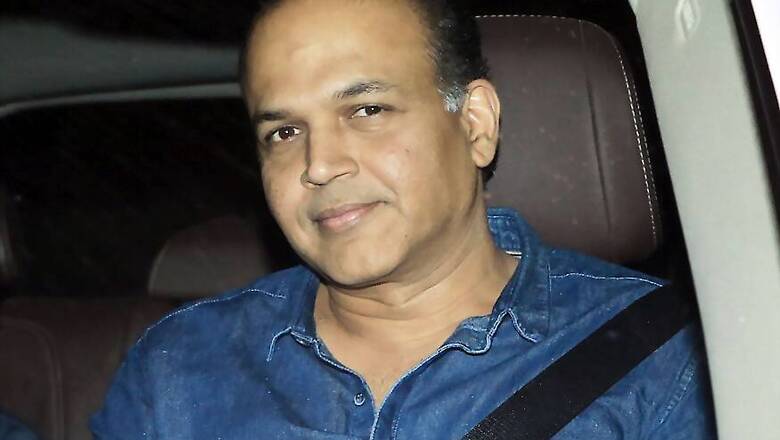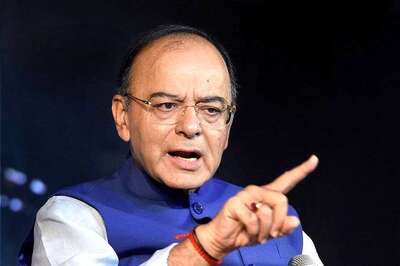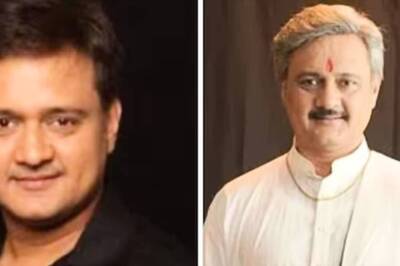
views
Filmmaker Ashutosh Gowariker's epic war film Panipat: The Great Betrayal, starring Arjun Kapoor, Kriti Sanon, and Sanjay Dutt, releases today. The film is based on the Third Battle of Panipat between the Marathas and Afghan ruler Ahmed Shah Abdali. While Sanjay Dutt essays Abdali, Arjun Kapoor will be seen as Sadashiv Rao Bhau, a Maratha Peshwa and Kriti Sanon will be seen as his wife Parvati Bai.
Ever since the trailer of the film released, it has been a topic of discussion, from people finding similarities between the film and Bajirao Mastaani, to claims that the depiction of characters is not as accurate as the 'Based on a true story' slide wants people to believe. After historian William Dalrymple tweeted a picture of the Afghan ruler from the Lahore Museum, Dr. Mohammed Taqi, a Pakistan-American columnist, questioned the inappropriate casting of Sanjay Dutt in the role. Moreover, a historical page Barmazid explained through a thread that the costume of the character was not era-appropriate.
Ahmad Shah #Abdali first invaded India when he was 25 and was 39 at the Battle of #Panipat. He was a handsome man by all accounts and died at age 50. Sanjay Dutt is 60 and looks 160. If nothing else the casting director of #panipatmovie should be fired posthaste https://t.co/cbRXrRLqF5 — Mohammad Taqi (@mazdaki) November 14, 2019
Whats up with the weird headgear of Ahmad Shah Abdali in the upcoming movie? — thread#panipatmovie #Panipat pic.twitter.com/XnCj3qyyAo — Barmazid (@Pashz7) November 14, 2019
It appears to me the costume designers of the movie did a simple google-image search and found the following image of Ahmad Shah Abdali and mistook the turban for some thing else. Note it is not a historical painting of Ahmad Shah Abdali, it is modern, and the artist was trying . pic.twitter.com/kEXMf3dKTJ — Barmazid (@Pashz7) November 14, 2019
However, this is not the first time Gowariker has received flak for "distorting" history. Several Rajput groups protested against his 2008 blockbuster Jodha Akbar saying that according to Akbarnama, the Rajput princess that the emperor married, who is the mother of Jahangir or Salim, was not named Jodha. In fact, the princess of Marwar, called Jodha, was actually married to Salim.
Even when he made Mohenjo Daro in 2016, knowing that the history behind the Indus Valley civilization was ambiguous and debated, he made quite a bold step as a filmmaker showing that the residents of the civilization migrated to the banks of Ganga to establish the Ganges civilization, when the only thing constant in every debate by historians was that an entire population was wiped out by reasons unknown.
Arjun Kapoor said in interviews that Panipat was like Kesari because even when the Marathas lost the battle as their feeling patriotism for India did not wane. However, the notion of India as a united country came during the freedom struggle and it became a united country after Sardar Vallabhbhai Patel's efforts in unification. The period in which the film is set, India consisted of numerous kingdoms under various rulers and the Marathas fought valiantly because of patriotism towards their own kingdom.
However, we must understand that cinema, like every other form of art, is subjective. Even Ashutosh Gowariker has addressed this in various interviews. After the backlash Jodhaa Akbar received, the filmmaker had told Open Magazine, “When I planned Jodhaa Akbar, I had the support of the Jodhpur royalty who were Jodhaa’s descendants. Because history keeps getting rewritten there are debates between historians. So, in this case, what you can do is read one book and stick to the facts in that. I have to choose one train of thought, which I think is correct [in] my belief. I need to have conviction from one historian. There will be arguments, and one cannot stop that.”
When Quentin Tarantino's Inglorious Basterds ended with Shoshanna Dreyfus burning the entire Nazi Army including Adolf Hitler and Joseph Goebbels, it worked because nobody went into the theatres anticipating a film which will accurately describe history. Even in Mohenjo Daro, when Hrithik fights a crocodile alone and sees a unicorn after saving an entire population, it is supposed to be taken as a creative decision taken by the director.
When the Mughal emperor bans the religious tax Jizya in Jodha Akbar and the entire capital comes together to perform a choreographed dance routine to name him Akbar, where in reality he was named so in birth, it can be seen as a tool to make an entertaining piece of cinema.
Dance sequences, love stories and heroic fighting with crocodiles and elephants aside, when a filmmaker goes on to portray two sides as black and white, it is our job as the audience to take it with a pinch of salt. Gowariker has time and again successfully connected with the audience with films like Lagaan and Jodhaa Akbar, which prove that just presenting bare facts does not make a film worth watching. Similarly, Panipat should be looked upon as a film through the director's lenses, and not a history lesson.
Follow @News18Movies for more



















Comments
0 comment